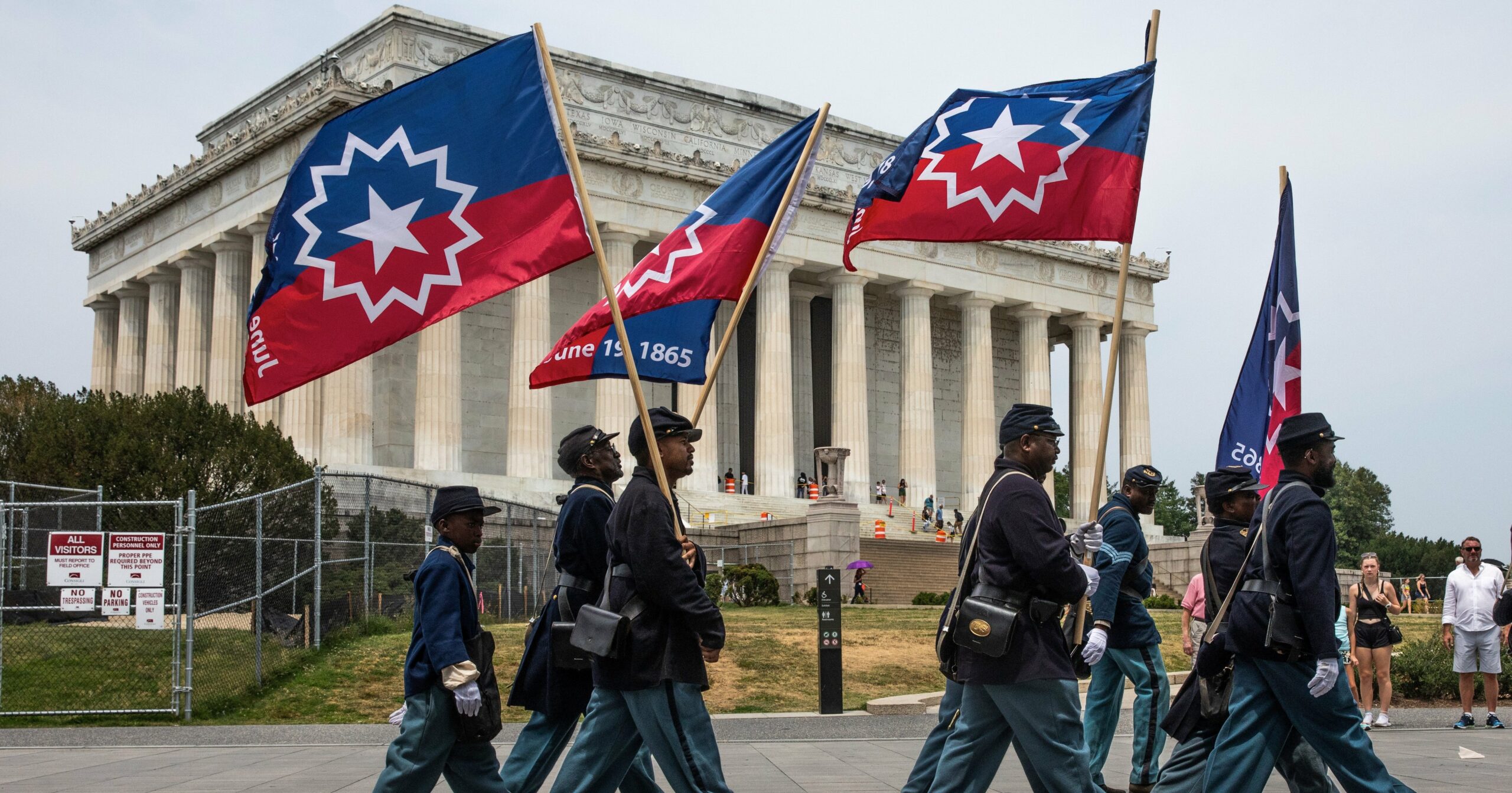Before 2021, many Americans had never heard of Juneteenth. But since becoming a federally recognized holiday that year, Juneteenth has been commercialized and commodified and lost its deep meaning and significance – a sad reality that, unfortunately, I predicted.
For my family, Juneteenth was always a cornerstone, a favorite of my great-grandmother and her mother, who grew up in Texas as descendants of the enslaved. I vividly remember celebrating the holiday in Fort Worth, TX – we’d gather with the family and neighbors on my grandmother’s street, sharing stories and memories, and connecting through food, music, and dance. From strawberry soda to red velvet cake, joy was at the center of the celebration. But there was always a commemoration, too: an acknowledgment of those who were no longer with us, never forgetting their sacrifices and perseverance that paved the way for us, the next generation.
Joy was at the center of the celebration. But there was always a commemoration, too.
Today, I’m saddened to witness the holiday reduced to a mockery: oversimplified ads featuring Juneteenth sales, grocery store displays riddled with stereotypes, and events with no substantive connection to the holiday. Juneteenth has suddenly become a day off of work for many – with more parties of celebration, but no commemoration of what June 19 really means.
This year, I want to see more commemorating of Juneteenth and less celebrating. Celebration, even with the best of intentions, can water down or trivialize the significance of the holiday. According to diversity, equity, inclusion, and justice consultant Joquina Reed, “Commemorating Juneteenth is an entry point into the concept of reparative justice. Our country must invest in rehabilitative measures that allow Black communities to directly address the intergenerational impact of enslavement, segregation, mass incarceration, and other racist systems. This is more important than ever in a society where individuals are losing hard-fought liberties.”
Juneteenth remembers June 19, 1865, when Union troops made their way to Galveston Bay, TX, to bring news of freedom to slaves – two whole years after President Abraham Lincoln made the Emancipation Proclamation. Commemoration acknowledges the perseverance of the enslaved and compels us to reflect on how we can carry on their vision for freedom in society today. We may not have been alive in 1865, but we have the awareness to right the wrongs of the past in our everyday actions – and it starts with recognizing that the fight for freedom has yet to be realized.
More commemoration needs to happen because celebration implies that something good has happened.
As Nicole Sanders, a therapist and social worker, puts it: “More commemoration needs to happen because celebration implies that something good has happened. Juneteenth was the end of one of the most horrific American experiences – enslavement. Not only was it horrific that we were enslaved, but even more so that people were enslaved long after it officially ended. Its effects are still present with us today.”
Long before it was recognized as an official holiday, Juneteenth was revered by the Black community because it represents our survival and also our future prosperity. And, for that reason, there is also a difference in how it should be commemorated and celebrated by non-Black people. In particular, because Juneteenth wasn’t until recently taught in schools or considered common knowledge, there needs to be a willingness and desire to learn and understand its significance. Non-Black people need to be invested in helping to undo generations of obscuring and erasing Black history. “Please use this holiday as a time for somber reflection and purposeful action,” Reed says.
So, if you are planning a party or cookout for Juneteenth, I urge you to reflect before simply carrying out your plans. What is the purpose of the event, how does it connect to the holiday, and how does it create a pathway of support for Black sovereignty and empowerment in business, education, and more? Here are some meaningful actions you can take on June 19 instead of trivializing the holiday.
Invest in Black Economic Empowerment
Black businesses receive less funding due to systemic barriers, so it takes much more work for Black businesses to survive and can have ripple effects for generations. The need to support Black women business owners, in particular, has never felt more urgent: earlier this month, a federal appeals court ruled that a grant program supporting Black women-owned businesses was unconstitutional.
Advocate for Black History in Education
We have seen continued efforts from conservative lawmakers to erase Black history in classrooms and libraries. This is why everyone needs to advocate that Black history, which is American history, be a mainstay.
This also means advocating for Black teachers. In our country, fewer than 1 in 10 teachers are Black, according to the Pew Research Center. That’s why equity is so important within school communities; Black teachers are keepers of knowledge who will help enrich the next generation.
Interrogate Anti-Blackness in Your Workplace
What policies and practices exist in your organization that continue to perpetuate harmful narratives and inequities? From hiring practices to pay inequity and unchecked microaggressions, anti-Blackness is palpable, and the more it goes unchecked, the more it contributes to systemic oppression and racism. Everyone can do their part to be responsible and accountable in their workplaces.
I love this holiday and feel a responsibility to fight for its preservation, emancipated from the plantation of commercialization. To simply treat it as a day off would be insulting to the enslaved – those who fought through unspeakable terror to survive, with their wildest dreams being for their descendants to carry forward their legacy free from bondage on June 19 and beyond.
Ralinda Watts is an author, diversity expert, consultant, practitioner, speaker, and proven thought leader who works at the intersection of race, identity, culture, and justice. She has contributed to numerous publications such as PS, CBS Media, Medium, YahooLifestyle, and the Los Angeles Times.




